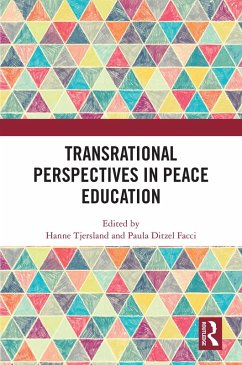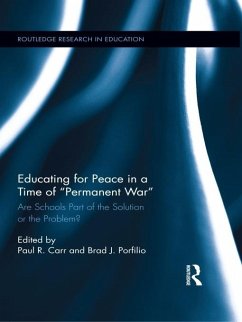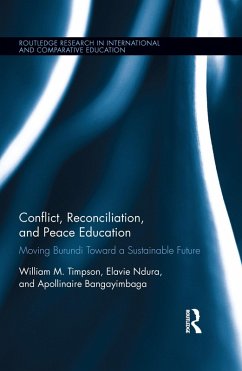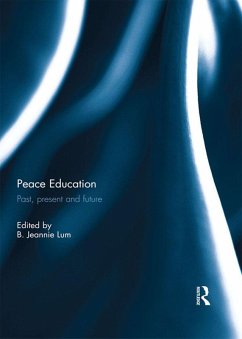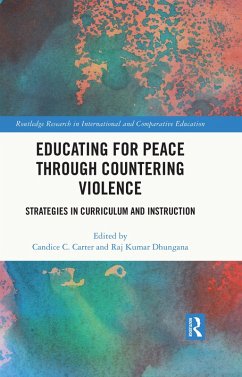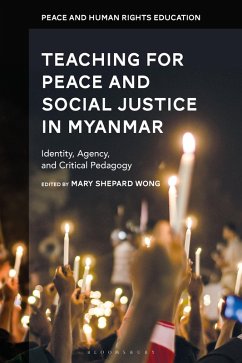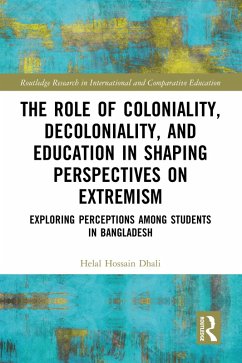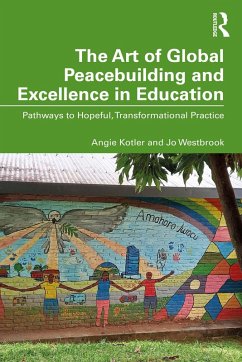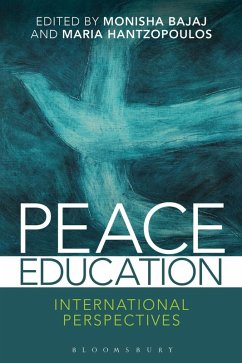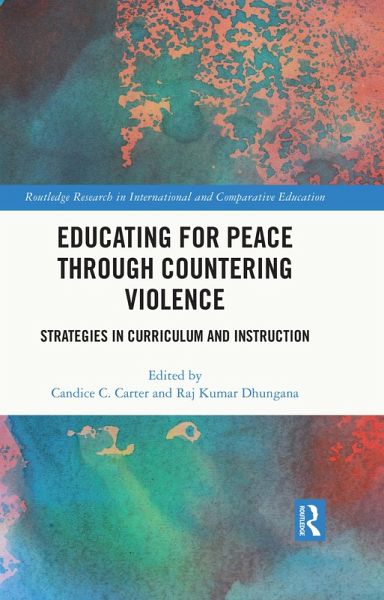
Educating for Peace through Countering Violence (eBook, PDF)
Strategies in Curriculum and Instruction
Redaktion: Carter, Candice; Dhungana, Raj Kumar
Versandkostenfrei!
Sofort per Download lieferbar
107,95 €
inkl. MwSt.
Weitere Ausgaben:

PAYBACK Punkte
54 °P sammeln!
This book advances knowledge about the implementation of peace and non-violence strategies in education that counter violence. Addressing both hidden and direct violence, it examines the harm to wellbeing and learning through a unique exploration of the role of teachers, and confronts the roots of violence in educational settings. Presenting and critiquing a range of pedagogical tools, case examples, and research, it examines how various methods can be used for identifying and proactively responding to conflicts such as injustice, discrimination, and prejudice, among others. Contributors prese...
This book advances knowledge about the implementation of peace and non-violence strategies in education that counter violence. Addressing both hidden and direct violence, it examines the harm to wellbeing and learning through a unique exploration of the role of teachers, and confronts the roots of violence in educational settings. Presenting and critiquing a range of pedagogical tools, case examples, and research, it examines how various methods can be used for identifying and proactively responding to conflicts such as injustice, discrimination, and prejudice, among others. Contributors present case studies from a range of global contexts and offer cutting-edge research on the applications of these resources, and how they contextualize peace education. An essential read for educators, teacher educators and peace scholars, it crucially offers pathways for confronting and healing from violence in both formal and informal sites of education.
The Open Access version of this book, available at http://www.taylorfrancis.com, has been made available under a Creative Commons Attribution-Non Commercial-No Derivatives (CC-BY-NC-ND) 4.0 license.
The Open Access version of this book, available at http://www.taylorfrancis.com, has been made available under a Creative Commons Attribution-Non Commercial-No Derivatives (CC-BY-NC-ND) 4.0 license.
Dieser Download kann aus rechtlichen Gründen nur mit Rechnungsadresse in A, B, BG, CY, CZ, D, DK, EW, E, FIN, F, GR, HR, H, IRL, I, LT, L, LR, M, NL, PL, P, R, S, SLO, SK ausgeliefert werden.




